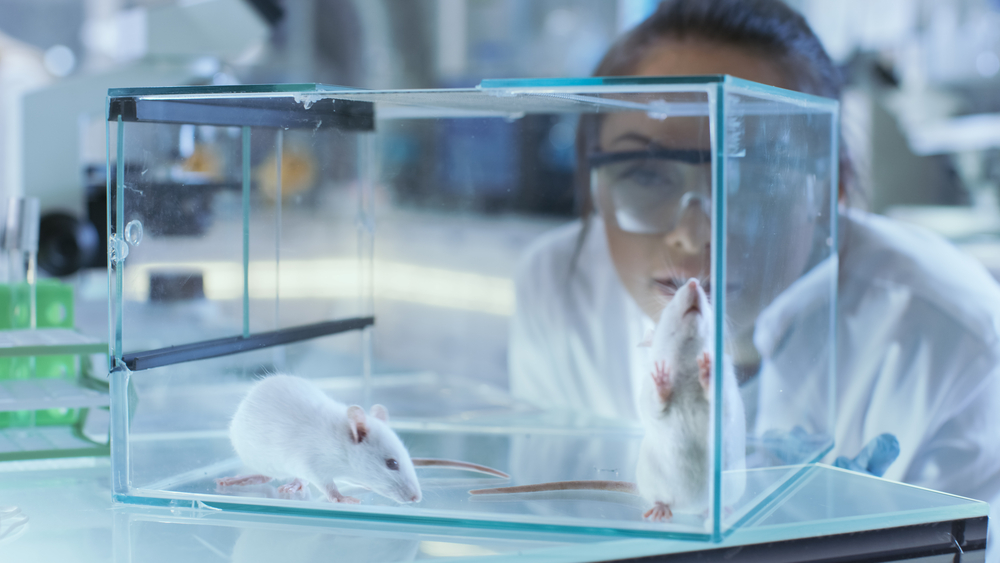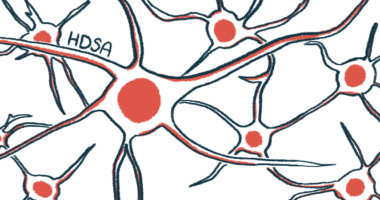Cdk5 Protein Activity in Brain Linked to Depression, Potentially Even Treatment, in Huntington’s, Mouse Study Suggests

Differences in the activity of a protein called Cdk5 in the brain could be a cause of — and perhaps even a target for the treatment of — depression related to Huntington’s disease, research in mice suggests.
The study, “Cyclin-Dependent Kinase 5 Dysfunction Contributes to Depressive-like Behaviors in Huntington’s Disease by Altering the DARPP-32 Phosphorylation Status in the Nucleus Accumbens,” was published in the journal Biological Psychiatry.
Depression affects people with Huntington’s at a rate nearly twice that seen in the general population, but the reasons for this have remained obscure. However, some evidence — particularly the fact that conventional antidepressants can be ineffective, or even make things worse, for people with Huntington’s — suggests that there are distinct changes in the brain during this disease that lead to the development of depression.
The protein cyclin-dependent kinase 5 (Cdk5) is involved in a number of cellular processes in the brain. It also has been linked to cognition and, specifically, to anxiety and depression.
“Therefore, we considered whether alterations of Cdk5 kinase could be the main cause of depressive phenotypes in Huntington’s,” Silvia Ginés, a professor at the University of Barcelona and one of the study authors, said in a press release.
Ginés and her colleagues used a mouse model of Huntington’s to test their hypothesis. They found that mice displayed “depression-like” symptoms — such as being slower to move in stress tests — as early as 2 months of age, before even the onset of the motor symptoms that are characteristic of Huntington’s.
In analyzing the mice’s brains, the researchers found that Cdk5 activity was higher in the nucleus accumbens and the prefrontal cortex — two regions of the brain associated with, among other things, depression.
Furthermore, when the researchers gave the mice Cdk5-inhibiting medicine, the mice had less severe depression-like symptoms. For example, the mice treated with the Cdk5 blocker were quicker to move in stress tests than mice given a placebo — although it should be noted that the treated mice with Huntington’s still showed more depression-like symptoms than mice without the disease.
The problem faced by researchers, however, is that Cdk5 doesn’t just affect depression. Because it has numerous roles to play, targeting it directly — as was done in the preliminary experiment — is not at all practical, or feasible, in humans.
“It would be necessary to avoid unwanted effects in other physiological pathways where this enzyme is active, and this would require defining which molecules the Cdk5 kinase acts on in a non-functional manner to create the depressive-like phenotype,” Ginés said.
Thus, the researchers also looked into the particular pathways through which Cdk5 might induce depression.
They found that Cdk5 is able to phosphorylate — or use a mechanism in which protein activity can be altered — a protein called DARPP-32. Phosphorylation involves the addition of a phosphate group (a phosphorus atom and three oxygen atoms) to a molecule, and it’s one of the primary ways through which cells carry out a variety of functions, including sending signals and utilizing energy.
Importantly, when the researchers engineered Huntington’s mice with a version of DARPP-32 that could no longer be phosphorylated by Cdk5, the mice no longer had depression-like symptoms. In fact, their scores were comparable to those of mice without Huntington’s.
These data suggest that preventing this specific molecular event — the phosphorylation of DARPP-32 by Cdk5 — could be a feasible strategy for preventing and treating depression in people with Huntington’s.
The researchers stressed that actual therapies in human beings are still a long way away, of course, and will require extensive additional research. But for now, the researchers are hoping to use their model to better understand how depressive symptoms are interconnected with the other manifestations of Huntington’s.
“We want to analyse whether preventing the appearance of depressive symptoms has an effect on the appearance of cognitive disorders, either because the latter are lighter, slow or not appearing at all,” Ginés said.






